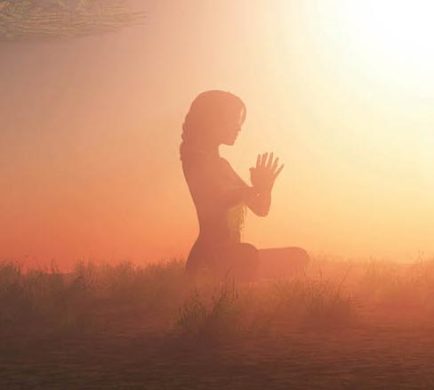By Paul O’Brien
In life’s travels, does anyone really have a clear idea of where they’re going? Most likely not. The innate reflex of action versus inaction is often ignored even as the steering force of making a decision, agreement, or commitment determines what kind of journey you’re on—and where you’re headed. There’s no reason to think that life is supposed to unfold in a straight line. Rather, it’s going to be a bit like sailing. Sometimes you sail along with a breeze at your back, but much of the time the voyage requires course corrections, especially when the only choice is to tack into the wind. And because they wake you up, your struggles make you stronger; however, the key is to approach these situations intelligently.
At times like these, when normal patterns are disrupted, an element of chaos or uncertainty arises—often accompanied by feelings of fearful apprehension.
Critical choice-points in life often show up as crises. However, such occasions can offer new possibilities, sometimes even great ones if you allow yourself a broader vision. A crisis can be a dramatic turning point—an opportunity to make great strides—if you choose to see it that way. The tools you develop and skills you cultivate throughout your life will ultimately determine how you navigate these challenges.
These days we recognize several forms of intelligence, including IQ, emotional intelligence, social intelligence, and—thanks to the work of Esther Perel—erotic intelligence. One of the most important forms of intelligence, however, is “intuitive intelligence.”
Long known as the “sixth sense,” intuition is a higher instinct, a feeling-based skill that bypasses logical analysis. The logical left-brain is great at taking things or ideas apart and putting them back together again, sometimes in inventive ways. While this has led to many great inventions, it has its limitations when it comes to important life elements like relationships, negotiations, and timing. Intuition is a means of sensing patterns without regulation by, or interference from, the analytical mind. Such a holistic approach to perception hinges on understanding that the totality of a system is much bigger than the sum of its parts and—for making crucial decisions—much more important.
Unfortunately, a person’s intuitive sense can’t be switched on like logical thinking. It depends on being open and receptive to a spontaneous flow of impressions, insights, ideas, unusual occurrences, coincidences, hunches, and inspirations that arise in your personal mindscape. Therefore, it makes sense that it can’t be forced; the mental circuits have to be open to patterns where the interconnections are not all visible yet. In order to develop our intuitive sense, we need to notice it and listen to it. It’s a subtle ability, which can make it hard to notice. Interference from all of life’s distractions, stronger feelings like anger or greed, even the chattering of the mind can easily drown it out. It “speaks” to us through a quiet voice or feeling.
Like meditation, intuition is mindful of the big picture. This high form of pattern recognition is related to the ability to hold a vision and connect the dots of life’s larger trends even when they are not visible. Paying attention and being open to intuition’s subtle signals gives us a singular advantage when it comes to making weighty decisions and cultivating intuitive intelligence. After all, intuition’s most important function is to help us make better decisions and to make the right moves at the right time. This is a central part of the “Visionary Decision Making” process.
Step one of Visionary Decision Making is to determine the best action to take. It is important to coordinate intuition with logic in order to make a wise decision. Secondly, you must allow yourself to live the belief that the choice you’re making is the best option for you. The third step is deciding when to act. Timing is especially important—and very tricky, since logic can’t help with this part. It’s an entirely intuitive decision. The final aspect of Visionary Decision Making is to make your move, with confidence, once you’ve decided the timing is right.
Divination systems like the I Ching tap into the energy of the situation and can be a great way to know when to turn your plans into action. An authentic divination reading will help you know when it’s right to assert yourself, when it’s time to retreat, or do nothing at all. Using divination tools can also help you move past confusion and fear, while finding greater clarity and creative freedom, in order to avoid the pitfalls of poor choices. Even a short do-it-yourself ritual can help you accept a situation you cannot change, or make better decisions about circumstances you can influence allowing you to co-create your life into a flow of experience that is balanced by wisdom, confidence, and acceptance. The I Ching and other similar systems are spiritual “power tools” that facilitate change with good timing, for ultimate happiness, success, and fulfillment.
If you’re new to divination, choose a system that is intuitively appealing to you. For example, do you feel inclined to the I Ching versus tarot cards? Or, maybe there’s another divination system? If you feel a natural leaning to one over another it may work better for you in the long run. Whichever system you decide to use, be prepared to enter a world in which you have access to more insight and guidance than you ever imagined. Be prepared for some confusion as well—after all you are still human—but stick with it. Don’t try to be too literal or expect an instant answer. Even if you’re not searching for the answers to specific questions, divination can also be used as a form of insight meditation with a calming effect, even as it calls up wise answers from within.
When faced with a decision or confusing situation, a do-it-yourself divination practice can be like a counselor—one who is available at any time, day or night—and can help you become in tune with your own intuition. Obviously, a live counselor offers certain advantages, but with a do-it-yourself divination tool you no longer need to depend on another person for balance, insight, or advice. With a working knowledge of the right tools, you can become your own counselor and “go direct” for divine wisdom any time you want— honing your intuition in the process.
Whether you use a preferred divination system or not, every action you take sets events in motion and any resultant situations will depend on the originating energy and the intention behind it. If you make unskillful choices out of fear, anger, or jealousy, then chances are good you’ll be repaid with corresponding circumstances and potentially consequences. When this happens the exact cause usually cannot be determined, so there is no point in asking, “Why did this happen to me?” The value of a belief in karma lies not in being able to trace cause and effect, but in accepting responsibility for your part in whatever happens, thereby developing virtue within yourself instead of playing the victim. It can be tempting to resist consequences, but that approach only leads to more suffering.
With a well-honed intuitive intelligence, you will find deeper levels of confidence in your ability to make the right moves at the right time. With clear awareness, wisdom when you need it, acceptance of change, and the patience to achieve your heart’s desires, your dreams will start to manifest before your eyes. Fulfilling your unique destiny is what you were born to do, and it is your most important challenge in life as a human being. So the next time you have a question that needs asking—help your intuition do the work and be amazed at the great decisions and feeling of perfect timing that follows.







